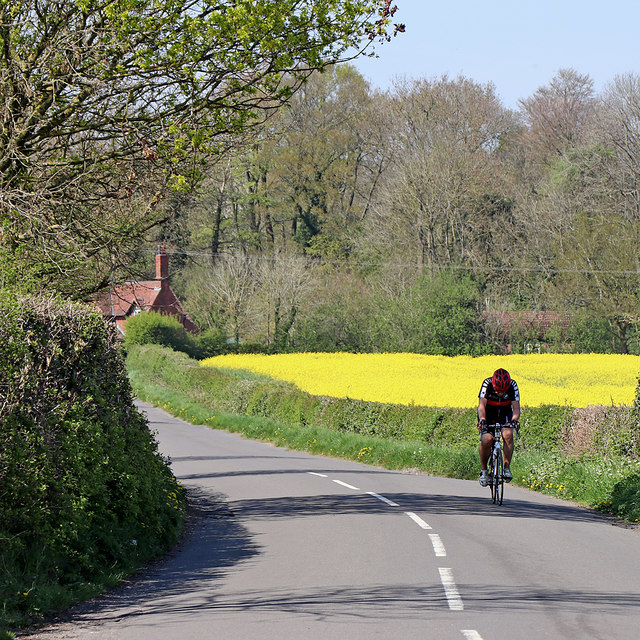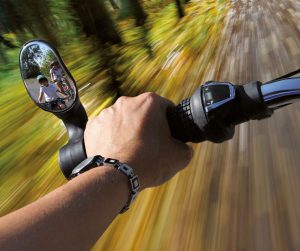How cycling can improve your mental health.
Seasonal Affective Disorder (SAD) affects the best of us, the type of depression that comes and goes with the seasons. Often called ‘Winter Depression’ due to its effects being more apparent and severe during the winter months. While the exact cause of ‘SAD’ is not fully understood, it is often linked to reduced exposure to sunlight during shorter days. It is believed that the lack of sunlight during these months affects a part of the brain called the hypothalamus, the main function of which is to produce hormones.
Many online forums and health websites will tell those affected by ‘SAD’ to seek help from their GP and yes it is important to check in with a professional if we are ever concerned about our mental health, many of these professionals will recommend a simple and yet highly effective treatment. Exercise.
That’s right, not only is physical activity good for our hearts and bodies but numerous studies have shown that exercise is just as effective for our mental health. Even a short burst of 10 minutes’ worth of exercise whether that be walking, jogging, or cycling; increases our mental alertness, energy, and positive mood. Participation in regular physical activity can also increase our self-esteem and can reduce stress and anxiety and what better way to get out and exercise, than picking up your bike?

So what are some of the benefits? It’s true that all forms of exercise are beneficial, but according to a study in Science Daily, exercising outdoors is one of the better ways to improve mental health. The results show that being out in the open, leaves you feeling revitalized, energized, and optimistic in a way that only mother nature can. The benefits also include increased exposure to as much natural sunlight as possible, perfect for getting those hormones produced properly, and after long periods of time stuck indoors due to lockdowns and isolations, getting back out into the beauty of nature is more appealing than ever.
A study in Science Direct showed that aerobic exercise, including running and cycling. Can significantly reduce feelings of anxiety. An exercise commonly practiced in Cognitive Behavioural Therapy (CBT) is mindfulness, the act of focusing on the present and throwing yourself completely into the activity of the moment, and with nothing but the road and the world around you to focus on, cycling becomes a perfect way to practice this, offering your mind a much-needed break from the stresses that everyday life brings.
11 years after the first modern bicycle was produced, Sir Arthur Conan Doyle wrote an article for Scientific American stating “When the spirits are low, when the day appears dark, when work becomes monotonous, when hope hardly seems worth having, just mount a bicycle and go out for a spin down the road, without a thought on anything but the ride you are taking.”
Having good self-esteem makes us feel good about ourselves, and cycling is a great way to boost this. We have all been impressed with ourselves when we have successfully stuck to a routine and slowly improved upon it and the success of sticking to a cycling programme is no exception. After all, seeing your fitness and performance increase gives you a sense of fulfillment and pride. Not only that but in a modern society that’s unfortunately but undeniably obsessed with body image, how we look is proven to have a direct influence on our self-esteem.
One of the greatest and often overlooked aspects of cycling is something that until the past few years many of us took for granted and that is that it can actually be a very social activity. Whether you’re a member of a large cycling club that gets together often or you just have a few friends that you enjoy going out for a ride with, nothing quite beats coming together with other like-minded people and doing something you all enjoy. While COVID-19 may have affected our ability to get together and restrictions should always be followed responsibly, regular socialising is proven to decrease stress and anxiety.

Having someone to talk to about our mental health is important, but it isn’t always easy and there sadly is still a wide stigma surrounding it. The truth is that we are all individual and different in our own way and we are all fighting battles that aren’t always visible to others, and sometimes just offering a listening ear can mean the world to someone. Three-time Olympian, Bobby Lea, opened up during world mental health day about his battle with situational depression as a teenager and his inability to face these issues head-on.
Speaking of his struggles adjusting back to normal life after Rio 2016 he said, “People talk about the poker face in sports, but it’s so much more than not showing pain on the bike. You have this idea that you’re not allowed to show weakness anywhere. It becomes a liability. I think the reality is that our individual issues might be different, but we’re all in this one together, we’re all fighting something.”
Researchers have estimated an inactive adult who exercises three times a week can reduce their chance of suffering from depression by 19%. While it is not entirely clear how cycling or exercising can help or in some cases prevent depression and other mental health issues, many researchers believe that it’s due to the need to focus on the present and the escape that cycling provides from everyday life, but also physical activity is proven as one aspect of an all-round healthier lifestyle, for it encourages healthier habits such as a more balanced diet and a more regular sleep pattern.
Lizzie Deignan, Olympic Road Race silver medallist, swears by cycling as a form of therapy. “Mental well-being is the most important cycling benefit for me. I rely on cycling and exercise to relieve any anxiety or stress that I may have built up,” she says.
































